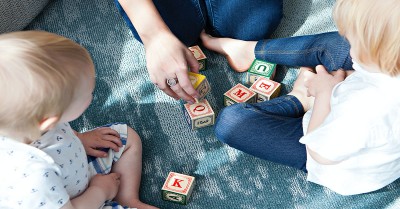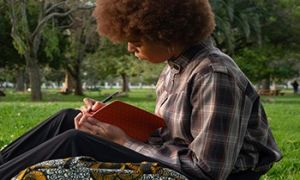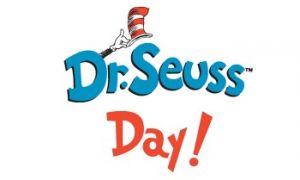Play-based learning uses playful experiences in which children have some degree of agency and control as opportunities for teaching a range of skills and competencies.
Here are some ways to understand the value of play-based learning and implementing play based learning into the learning environment.
Play Is Joyful
Play-based learning demands to be put in place for the sheer joy it brings to young children. As they squeal and laugh and knit their brows in fierce concentration, they are immersed in the innate pleasure of the experience – which is why any learning that happens alongside is sure to be effective. For example:
- As kids dig their fingers in mud or splash in water, talk about different textures, elements and the world around us.
- When your learners role play a grocery shopping experience, introduce counting and simple numeracy skills.
- Dabbling with paints and crayons can likewise encourage them to draw shapes, lines and basic geometrical designs
Play Needs Planning
To enhance joyful learning, the right set up becomes important. As an educator, you can ensure that the environment has an arts table, reading station, a maths table, science corner, a nature nook and a mock stage with curtains and so on. Such arrangements will provide the space and materials for children to choose what and how they wish to play besides offering multiple sensory experiences. Indeed many of the materials from one centre like coloured blocks at the maths table can even be integrated at other centres, like the crafts corner. The whole idea is to let imagination and learning flow from one space to another in the continuum of play.
Play Builds Cognitive Skills
Best of all, play-based learning helps children think, plan and come up with solutions. To encourage this you might:
- help a child figure out ways to build structures with smaller blocks when the larger ones are not available
- ask about the menu when you find a child planning a Sunday family dinner
- invite questions about dress and transport if children are playing make-believe journey to the Arctic
Play Is Meaningful
Play offers ample opportunities to understand the real world through concepts ranging from science and mathematics to reading, history and geography. If a child admits he or she likes these big yellow seeds, you might want to ask:
- How many do you think you will need to fill this big basket? Or that small bowl?
- Why do you think the seeds are yellow and not a dull brown?
- What other words can you come up with to describe this seed – round, smooth, hard, prickly?
Indeed play offers opportunities for creativity and aesthetics as children mix colours on their own, use sounds in new ways and string words for personal expression.
Play Teaches Social Skills
Through free unstructured play, children learn new social skills, especially when sharing toys, negotiating who will be the mommy or baby during role play or agreeing on how to work together with materials. All these skills make up the foundation of continuous and meaningful negotiation with the world and hence are crucial for a range of learning competencies.
Free Benefits Of Play Posters
The Benefits of Play Posters provides detailed information on how the child benefits from playing in different areas set up throughout the early childhood service. These posters provides the purpose, the development and learning and the skills a child develops when playing and engaging in different experiences throughout the day.
Click the link to download: Benefits of Play Posters
References:
Unicef Foundation Learning Through Play, Unicef



 Here’s a comprehensive Mobile Phone and Smart Watch Policy tailored for early childhood education and care (ECEC) services in Australia, aligned with the latest 2025
Here’s a comprehensive Mobile Phone and Smart Watch Policy tailored for early childhood education and care (ECEC) services in Australia, aligned with the latest 2025 Across the early childhood education and care sector, educators are sounding the alarm: current staffing ratios are insufficient to deliver safe, meaningful, and developmentally appropriate
Across the early childhood education and care sector, educators are sounding the alarm: current staffing ratios are insufficient to deliver safe, meaningful, and developmentally appropriate Thanks to the new National Model Code and upcoming regulatory changes under the National Quality Framework (NQF), early childhood services across Australia must now implement
Thanks to the new National Model Code and upcoming regulatory changes under the National Quality Framework (NQF), early childhood services across Australia must now implement In the quiet hum of a weekday morning, something felt off. Preschool doors opened, but classrooms remained silent. No greetings. No redirection. No educators. And
In the quiet hum of a weekday morning, something felt off. Preschool doors opened, but classrooms remained silent. No greetings. No redirection. No educators. And A: In early childhood education and care (ECEC) settings across Australia, mobile phone use by educators is now subject to strict national reforms aimed at
A: In early childhood education and care (ECEC) settings across Australia, mobile phone use by educators is now subject to strict national reforms aimed at The end of the year is a busy and emotional time in early childhood services. Many services close for a short period over Christmas, and
The end of the year is a busy and emotional time in early childhood services. Many services close for a short period over Christmas, and Being an educator is both rewarding and demanding. Between planning, documentation, room management, and supporting children’s wellbeing, the workload can feel overwhelming. That’s why practical
Being an educator is both rewarding and demanding. Between planning, documentation, room management, and supporting children’s wellbeing, the workload can feel overwhelming. That’s why practical In early childhood education and care, child safety is not just a number—it’s a practice. While educator-to-child ratios are essential, they are only one part
In early childhood education and care, child safety is not just a number—it’s a practice. While educator-to-child ratios are essential, they are only one part A: Something as simple as a child asking to braid an educator’s hair—or children braiding each other’s can spark important questions about connection, trust, and
A: Something as simple as a child asking to braid an educator’s hair—or children braiding each other’s can spark important questions about connection, trust, and Here's a comprehensive, sector-responsive policy and procedure framework for the safe use of digital technologies—including CCTV—tailored for early childhood education settings. It balances child safety,
Here's a comprehensive, sector-responsive policy and procedure framework for the safe use of digital technologies—including CCTV—tailored for early childhood education settings. It balances child safety,


